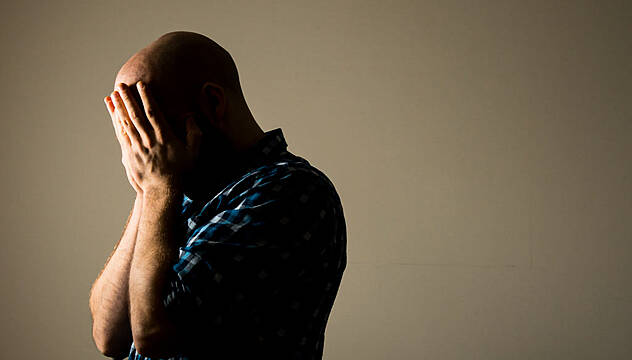As the world starts to grapple with the devastating reality of the Covid-19 pandemic, we are only now starting to see the impact on people's mental health.
The real impact on people's mental health is slowly coming to the fore as society begins to reopen.
Speaking to BreakingNews.ie, clinical psychologist, Dr Vincent McDarby says it is not surprising. “Across the board there has been a huge increase in demand for mental health services both public and private. This is the first time we have been through anything like this," he says.
The president-elect of the Psychological Society of Ireland (PSI) says there has been at least a 25 per cent increase in referrals to mental health services.
As was reported last month, from October 2019 to September 2020 one charity alone received more than 240,000 contacts from children and young people.
The chief executive of the Irish Society for the Prevention of Cruelty to Children (ISPCC), John Church, said at the time that children will continue to face “acute” mental health challenges related to the pandemic.
Dr McDarby, who works in Crumlin's Children hospital, says he has noticed similar issues.
Delayed symptoms
“What we have seen is a significant increase in anxiety, low mood, eating disorders as well in young adults and adolescents.”
He says many people are experiencing delayed symptoms, and it is only when they begin to re-enter society they are suffering from increased anxiety.
Dr McDarby says: “A lot of people felt very safe during the initial lockdown and what happens when we experience threat or trauma, is that we make our world small.”
“You often see it after a car accident, you might not go out for a couple of days because you need a safe, predictable environment.”
People felt very safe at home and once things started to open up there was a massive increase of anxiety among people.
Even though people are going back to work, there is still trepidation about how quickly things are returning to normal.
The National Public Health Emergency Team (Nphet) is expected to recommend that a wider return to working from home should be considered by the Government.
The PSI president says, there are both pro and cons to working from home.“We won’t be going back to the same world; it is a changed world. Some of those changes are for the better, some for the worse."
Lost culture
A benefit of more online work is cutting out unnecessary business trips, but "there are certain aspects of our culture around socialising that we may have lost," he says.
For psychologists, one of the biggest issues is that there is very little research to draw on about global pandemics. During the last major global pandemic—the Spanish Flu back in 1918—the field of psychology was in its infancy.
“What we have had to do is compare it to similar things like natural disasters or a terrorist attacks that hit a population. It’s not the same, but that is our best guess,” he says.
“Everyone who was alive and conscious in 2020 had their own Covid-19 experience. There has been no period like it in our history.”

One of the more positive impacts of the pandemic initially, was the sense of national pride it brought as doctors and nurses came home to help the country in a time of need.
People across Ireland reached out to make sure those in their community were safe. There was also a huge concern about the elderly being socially isolated as they were forced to cocoon for months.
Worker burnout
Dr McDarby says new research suggests that it was actually people in their twenties that saw the biggest increase in loneliness during lockdown.
“I would suspect that older people were looked out for and people visited them. It may have been an easier adjustment for them staying at home,” he says.
For young people who were used to going out socialising every weekend, it was a big shock to the system.
Frontline workers and especially healthcare workers shouldered a huge burden during the pandemic. New research led by Dr Damien Lowry at the Mater Hospital is tracking the psychological wellbeing of healthcare staff at hospitals across the State.
You could potentially see issues like anxiety, depression and burnout with many healthcare workers leaving the profession because of it.
Dr McDarby says: “We are not going to know for three or four years what measures were effective and what were not," and as psychologists continue to monitor the impact of the pandemic, we could see more issues emerge in the future.
Thankfully, there have been some bright spots to it all. "I think there has been a big realignment," he says. "A lot of people enjoyed the first lockdown because they got to bond more with their kids.
"People had a chance to reconsider what is important to them and now that they have got a taste of a better work/life balance, many do not want to go back to the way it was."







